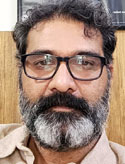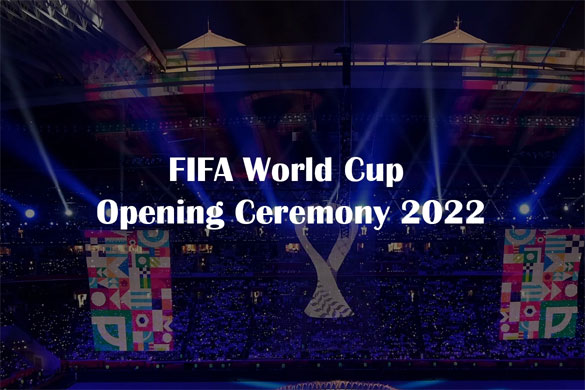How Qatar Lost the Chance to Showcase Islamic Pluralism

By Arshad
Alam, New Age Islam
22 November
2022
Instead,
Its Representation Of Islam Reeked Of Supremacism And Exclusivism
Main
Points:
1. The football
world cup 2022 is being held in Qatar, the first in the Arab region
2. As an
Islamic country, it is expected that religion would inform most of its
practices
3. But this was
an opportunity to present an Islam which was plural, tolerant and accommodating
4. Rather, by
calling people like Zakir Naik, who preaches that only Islam is the true
religion, Qatar looked more interested in representing Islamist supremacism
5. By banning
beer and displays of alternative sexual orientations, it excluded all those who
had a different lifestyle
6. Many Muslims
saluted Qatar for upholding the country’s principles but the same Muslims cry
hoarse when following their own principles, some countries ban the burqa or the
hijab
-------

Ever since
the tiny gulf country, Qatar, won the rights to organize the football world
cup, there has been a barrage of criticism, mostly emanating from Europeans.
The criticism levelled at Qatar relate to its human rights abuses, its
non-recognition of alternative sexual identities, the sexual segregation, etc.
Some of this criticism seems valid, but some are the products of deep-seated
anxiety with the Islamic faith. Certainly, Qatar is an Islamic country, and as
such the religion informs much of its law related to life style, etc. But
unlike other countries in the region, Qatar has quite a presence of women in
the public sphere, with some of them occupying high offices.
It is also
true that the country did not follow the laid down procedures of international
labour laws; there were reports that it did not even compensate these workers
properly. But the only people who should be complaining about this are the
countries from which such workers were sourced: Nepal, India, Bangladesh, etc.
There are reports that nearly 650 workers, mostly from these countries, died
during the construction spree witnessed during the last decade. Europeans
should be the last people to raise these issues, certainly not after
incinerating millions in Iraq and other parts of the world. It would be much
better if they just concentrated on their own appalling record of human
devastation across the globe.
Qatar, and
other countries in the region, are faced with an existential dilemma. And that
has to do with the future holds for them after the oil has run out. It is for
this reason that Saudi Arabia and the UAE are diversifying their economies,
making them less dependent on oil revenues. The UAE has nearly transformed
itself into a financial hub of the region; the Saudis are emulating them and
are trying to open the economy. But the economy just does not operate in a
vacuum; it needs an ideological infrastructure to flourish and thrive. Changes
in economic policies are often accompanied by changes in social and religious
mores. The organization of Halloween by the Saudis was designed to test whether
the country is getting ready for such changes and one shouldn’t be surprised if
they organize more such ‘un-Islamic’ events.
There were
many reasons for Qatar bidding for the world cup and eventually winning it, but
the economy was perhaps the foremost reason. Again, the country wanted to
diversify and move away from its dependence on oil. But also, they were
interested in it for geopolitical reasons. By becoming the center of
footballing world, they have shown to the big brothers like Saudi Arabia that
their blockade didn’t really work. Today, the whole of middle east is in Qatar,
enjoying the world cup and perhaps ruing the day when they decided to
financially encircle this tiny country. But then again, can a diverse economy
remain immune to changes in cultural and the religious sphere? Qatar had a
chance to show the world that their Islam was one which could adapt and change.
But that opportunity is perhaps lost.
First by
inviting a person like Zakir Naik to be an important guest (and reportedly to
preach Islam to people assembled there), Qatar is unfortunately telling the
world that it still believes in the supremacy of Islam to all other religions.
After all, why call a man who made Islamic supremacism his creed, and has
consistently argued that except Islam, all other religions are false. This
preacher is wanted in India and in UK, primarily because he has inspired
Muslims (though only a few) to take up terrorism in defence of their faith. By
extending invitation to such a person, Qatar is basically endorsing the
Islamist position of Zakir Naik. Moreover, Qatar should not forget that it was
one of the first countries to censure India over the ‘hate speech’ of Nupur
Sharma, the ex-BJP spokeswoman, when she had spoken uncharitable words about
the prophet. Qatar then had preached India about the values of religious
tolerance and pluralism. How should we then understand this invitation to Zakir
Naik whose very presence is insulting to other religious traditions, including
Hinduism. So, is Qatar telling the world that values of religious pluralism,
etc. are to be respected only when Islam is at the receiving end?
Second, the
decision to ban alcohol (primarily beer) by Qatari authorities has similarly
generated much debate. Many Muslims have supported the decision by arguing that
as a sovereign country, Qatar has the authority to follow its traditions; in
this case keeping beer away from stadiums. However, these same Muslims have a
huge issue when a country like France enforces its own secular tradition of
banning burqas and head scarfs. Many would call his hypocrisy but again the
point perhaps is something else. Muslims are basically arguing that while they
should be free to enforce their own tradition, non-Muslim cultures do not have
that choice. Again, this underlying supremacy of Islam needs to be questioned,
but Qatar seems to have strengthened that notion through its action.
The
football world cup is a global event and fans from very different cultural and
religious traditions take part in it. Not making space for their point of view
will only remind them about the insularity of Islam and Muslims. And there is
historic precedence within the Muslim culture to make space for other
traditions. Muslims in the Ottoman empire always made exceptions for Christians
and their consumption of alcohol. The Ottomans always argued that the ban on
drinking was only for Muslims; the Christian tradition allows for its
consumption and hence we should not stop it. Why is it that this historical
precedence was not invoked by Qatari authorities to make this mega event more
inclusive and accepting of other ways of life? The less it is said about its
Qatar’s treatment of LGBTQ+ rights, the better it will be. It is sad that hosts
of football lovers who come from such communities decided against travelling to
Qatar because of its strict laws against gays and lesbians.
The opening
show was equally a chance to showcase the variety of ways cultures and
traditions that have built the country. Qataris are a minority in their own
country, so it is the guest workers who have very nearly transformed the
country into one of the richest in the world. Like most of the Arab world, they
do not get citizenship status. The least they could have done was to pay
respect and homage to these workers who come from very different religions and
cultures.
The opening
ceremony started with the passage of the Quran which celebrates plurality but
alas, its deeper message was completely lost on the organizers.
-----
A regular contributor to NewAgeIslam.com, Arshad Alam is a New Delhi based independent researcher and writer on Islam and Muslims in South Asia.
URL: https://newageislam.com/islam-pluralism/qatar-world-cup-islamic-pluralism-/d/128460
